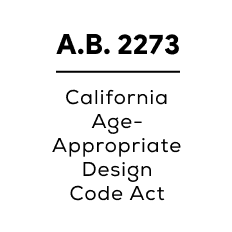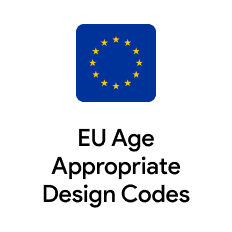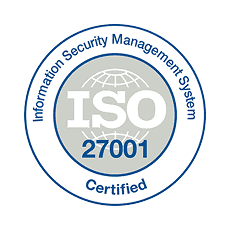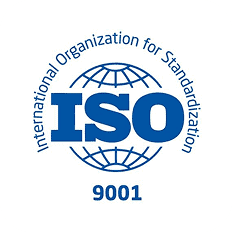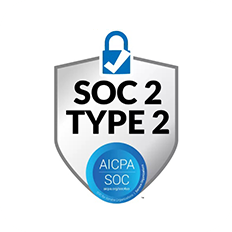Introduction
PrivateID is built for seamless, interoperable identity authentication with complete privacy at its core. Its edge-based architecture and patented tokenization ensure biometric data never leaves the device, enabling scalable, compliant, and frictionless authentication across industries.
Ayonix is a Japan-based facial recognition vendor known for 3D face recognition software, SDKs, and turnkey products used in access control, surveillance, and retail analytics. Offerings include cloud/on-prem deployments, real-time alerts/search, and integrations with VMS/camera ecosystems.
1. Architecture
PrivateID: Performs 1:1 biometric matching directly at the device edge. Biometric data and PII remain securely on the device, preserving privacy while eliminating data breach risks and simplifying global compliance.
Ayonix: Provides a platform, SDKs, and plugins designed for server/cloud or on-prem processing, feeding from cameras/VMS; person galleries and matching run on centralized services.
2. Privacy & Tokenization
PrivateID: Uses patented Homomorphic Tokenization, transforming biometrics into irreversible, anonymized tokens. Tokens are unique, cannot be reverse-engineered, and are IEEE 2410 compliant and therefore do not incur global biometric privacy law obligations under GDPR, CCPA, BIPA and HIPAA. No biometric images or templates are transmitted.
Ayonix: Markets face recognition as part of security/identity products; public materials emphasize deployments and performance, not privacy-preserving tokenization. Customers remain responsible for legal compliance, storage, and retention.
3. 1:1 vs 1:N Matching
PrivateID: Uses patented homomorphic tokenization to transform biometrics into irreversible, guaranteed unique, fully anonymized tokens for 1:N while performing 1:1 at the edge.
•1:1: Edge-based, no network transmission.
•1:N: Only anonymized tokens are transmitted; enables bandwidth-light (~1 KB/token) constant-time lookups (~5 ms) regardless of gallery size.
Ayonix: Supports both Verify (1:1) and Identify (1:N) via SDK/API and platform services; claims include matching from millions of records at high speed in centralized galleries.
4. Multi-Modal Biometrics
PrivateID: Supports facial, voice, palm image, and fingerprint biometrics; can combine with passkeys and additional risk signals (geolocation, Wi-Fi sniffing, device fingerprinting).
Ayonix: Focused on face recognition and video analytics (attributes such as age/gender, sunglasses detection). Other modalities are not core to Ayonix’s platform.
5. Liveness Detection (PAD)
PrivateID: On-device, advanced anti-spoofing against photos, masks, and deepfakes without transmitting data.
Ayonix: Publicly available materials highlight access-control terminals and face analytics; detailed PAD/liveness specifications or certifications are not prominently published. Buyers should confirm PAD capabilities and testing (e.g., ISO/IEC 30107-3) during evaluation.
6. Scalability & Efficiency
PrivateID: Unlimited scalability with consistent performance. A 5 MB image is reduced to ~1 KB token. Constant performance regardless of gallery size.
Ayonix: Designed for large watchlists and distributed camera networks; partner materials cite 6 million records in ~100 ms and low compute/storage footprint relative to peers (server-side). Actual throughput depends on
hardware and deployment.
7. Accuracy
PrivateID: Delivers 99.999% accuracy across unlimited gallery sizes. (NIST FRVT leader)
Ayonix: Markets high accuracy and speed for real-time deployments; external partner listings reference strong performance for 3D face matching, but recognition accuracy will vary with image quality and gallery scale.
8. Compliance & Security
PrivateID: Processing is performed at the edge (1:1) or through patented Homomorphic Tokenization (1:N) and does not incur global privacy obligations under GDPR, CCPA, HIPAA, and BIPA (annually certified to IEEE 2410). No biometric data is stored or transmitted.
Ayonix: Provides the technology; enterprises must implement compliant data governance (consent, retention, access, DPIAs) suitable to their jurisdiction. Public profiles position Ayonix across security and retail use cases, without claims of compliance exemptions via tokenization.
9. Deployment & Integration
PrivateID: Lightweight SDK/API for rapid integration across IAM, healthcare, retail, and finance. Software-only; runs on general-purpose hardware (desktop, mobile, POS).
Ayonix: Offers FaceID SDK for Windows/Linux/Android/iOS, web APIs, Milestone XProtect plugins, and dedicated access-control terminals—supporting cloud or on-prem rollouts.
10. Ethics & Trust
PrivateID: Purpose-built for user-consented, privacy-preserving identity verification.
Ayonix: Deployed across surveillance and access-control contexts via partners/integrators. Organizations should assess ethical guardrails (watchlists, human review, redress) appropriate to their risk posture and locale.
11. Cost & Total Cost of Ownership (TCO)
PrivateID: Edge processing and tokenization reduce bandwidth, compute, and storage costs by orders of magnitude; minimal infrastructure.
Ayonix: TCO depends on number of cameras/sites, gallery size, and whether using cloud, on-prem servers, or dedicated terminals; vendor materials emphasize high performance with modest hardware.
12. Latency & User Experience
PrivateID: Consistent ~100 ms processing ensures real-time authentication without user delays, even at massive scale.
Ayonix: Real-time matching/alerts are core design points; end-to-end latency depends on capture quality, network, and server capacity. Partner listings cite sub-second matches at scale.
13. Deployment Flexibility
PrivateID: Operates fully at the edge for 1:1 and hybrid edge-to-server for 1:N with tokenization; cloud/on-prem/hybrid with no vendor lock-in.
Ayonix: Supports cloud and on-prem models, SDK/API integrations, and VMS plugins; matching is typically server-side.
14. Ecosystem & Interoperability
PrivateID: Easily integrates with IAM, MFA, Passkeys, and risk-based authentication systems. Standards-based (IEEE 2410, FIDO2) interoperability supports enterprise and consumer use cases.
Ayonix: Integrates with camera/VMS ecosystems (e.g., Milestone XProtect) and custom apps through SDKs and web APIs; not positioned as a standards-based IAM/passkey platform out of the box.
15. Bias & Fairness
PrivateID: Tokenization removes demographic markers from biometric data, reducing the risk of bias and improving fairness across populations.
Ayonix: Public materials focus on capabilities and performance rather than demographic-neutral tokenization; buyers should evaluate dataset representativeness, testing protocols, and governance.
16. Business & Market Positioning
PrivateID: Positioned for enterprises, healthcare, finance, and retail requiring privacy-first, compliant, and scalable biometric solutions.
Ayonix: Independent face recognition vendor (founded 2007, Tokyo) with solutions spanning access control, surveillance, and retail analytics; distributed via SDKs, integrations, and terminals through partners.
Summary
PrivateID provides a privacy-first biometric platform that performs 1:1 matching at the device edge and leverages patented homomorphic tokenization for 1:N searches. This design ensures biometric data never leaves the device, delivers constant-time performance and multi-modal authentication, while inherently meeting global privacy standards and reducing infrastructure costs.
Ayonix offers high-speed 3D face recognition through SDKs, APIs, and integrations for security and retail scenarios, typically using server/cloud or on-prem processing with centralized galleries. While capable and widely integrable, customers must manage privacy/compliance and confirm PAD/liveness specifications aligned to their policies and jurisdictions.









